Mutations: Interdisciplinary Residency Programme
KfW Stiftung and Akademie Schloss Solitude are delighted about their cooperation with a new programme to foster transdisciplinary and transcultural dialogue as well as critical reflection between the arts and sciences. With this interdisciplinary thematic call, Akademie Schloss Solitude – for the first time in its 30-year history – is expanding its profile with a content-related programme. Artists, scientists and creative minds are invited to engage in a focused group conversation. The first open call from 2019 had its focus on the topic of »Mutations«. The application deadline for the current Programme has expired.
Events
Publications
Stipendiat*innen 2020/21
Partner
Ausstellung Villa 102
Who could apply?
The open call was open to applicants from all fields of the arts and sciences – VISUAL (visual arts and media), AURAL & PHYSICAL (music and performing arts), DIGITAL (digital art, gaming, digital journalism, digital publishing), SPATIAL (architecture and design), TEXTUAL (literature and language), SOCIETAL (education, mediation, theory), SCIENTIFIC (humanities and sciences). The program addresses young professionals with different disciplinary emphases with a distinct interest in a transdisciplinary approach and a strong motivation for group interaction. We particularly encouraged artists from non-Western knowledge backgrounds to apply for the fellowship. The conditions of the Akademie Schloss Solitude applied.
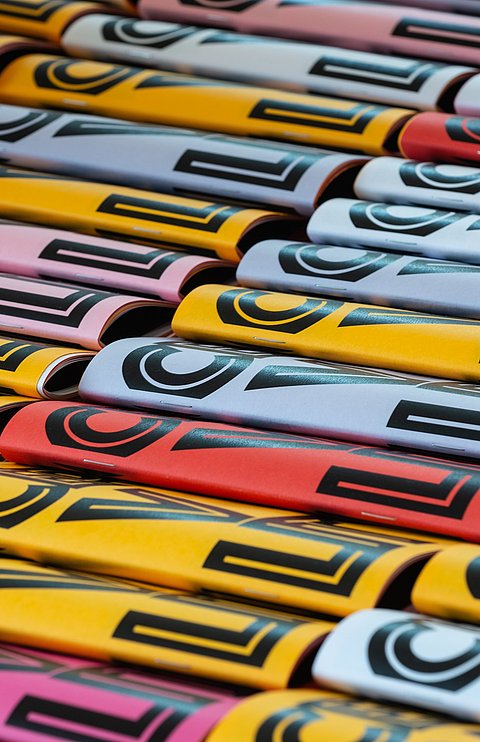
Thematic Focus: Mutations
Mutations are processes with unpredictable outcomes: transformation, loss of control, and irreversibility, but also diversity, metamorphosis, and hybridity. It is this indeterminacy and associative richness that makes mutations uncanny and attractive at the same time.
In the fields of biology and genetics, mutations refer to a change in DNA, the elementary code of life.
Mutations occur as variation and alteration, as unforeseen transformation of material or environment. Mutations happen at the intersection of information and manifest in a modification of all aspects of life; in the physicality of living beings. In the environment and its ecological, social, and political conditions they apply to the formation of cultural spaces. Mutations hold an enormous potential for radical thinking and change. They contradict the existing order, challenging hierarchies and perhaps heralding the dawn of a new age.
Today’s ecological crisis and social inequalities pose serious structural challenges to all societies of today. Residence programs serve as an experimental space in which the participants observe, analyze, and challenge mutant processes. Through the lens of mutations we can assess and rewire these processes from the ground up. In this sense, how can we think about mutations in times of profound socio-political and ecological change? How can we unleash the diversity and multiplicity that is inherent to mutations? What does "mutation" mean in the interrelationship between artistic, social, and planetary work? In this sense, "mutations" serve as a subject to be explored from intertwining points of view, both scientifically and artistically. The group of seven selected fellows will be committed to working on the topic jointly for the time span of nine months. They will contribute to the Akademie’s internal program via monthly labs, and will also participate in public events. Accompanying mentoring will be offered during the entire stay of the residence.
"Mutations" is a cooperation of Akademie Schloss Solitude and KfW Stiftung to foster transdisciplinary and transcultural dialogue between the arts and sciences. By inviting artists, scientists and creative minds from all fields to engage in a focused group conversation within a given thematic frame, the 9-month-program encourages critical reflection and artistic production as well as encounters across disciplines.
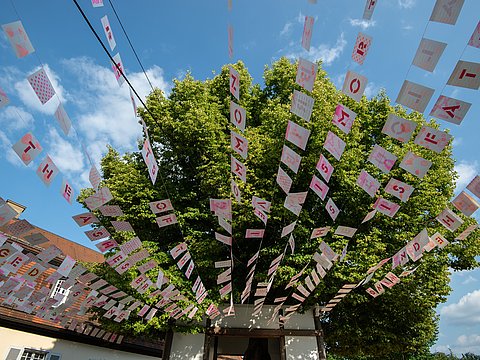
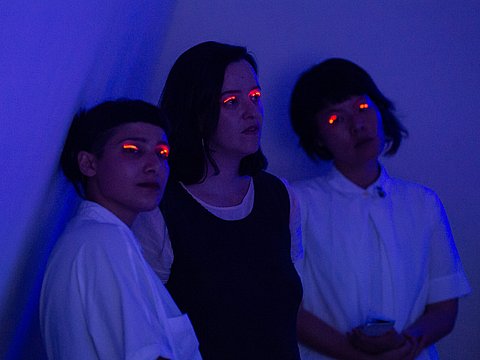
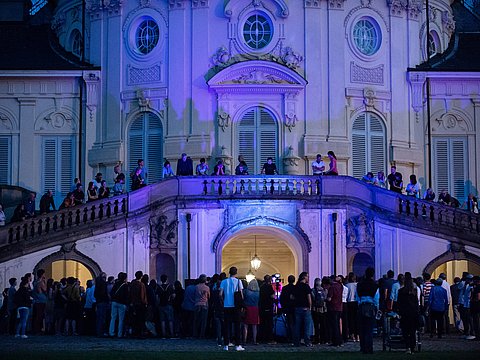
Jury and Mentors
Members of the 2019 jury were Neo Muyanga, Dr. Pinar Yoldas, Nishant Shah, Prof. Dr. Giovanni Galizia and Sepake Angiama. They will act as mentors to the selected fellows during their residency.
The jury meeting was accompanied by Daniela Leykam (KfW Foundation), Elke aus dem Moore (Director of Akademie Schloss Solitude), Yasemin Keskintepe (Personal Advisor to the Director of Akademie Schloss Solitude), Louisa Schmitt (Assistant to Thematic Call).
Selection procedure
A jury, consisting of various international experts from the respective fields, reviews the applications and decides on the selection of the scholarship holders. The selection process is accompanied by Daniela Leykam (KfW Foundation) and Elke aus dem Moore (Director Akademie Schloss Solitude).
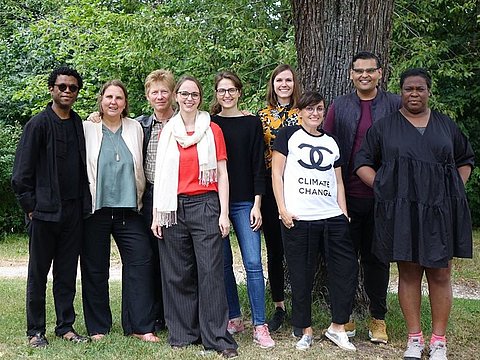
Fellows 2020/21
Angela Anderson (*1976 in Marinette/USA) is an artist and researcher working at the intersection of philosophy, ecology, economics, migration, feminist and queer theory. Much of her work centers around the devastating effects of large-scale natural resource extraction projects and the complex economic, social, historical, aesthetic and affectual forces that converge within them. Her artistic production takes the form of multi-channel video and sound installations, sculptural elements and photography.
Through experimentation with audio-visual forms, Anderson creates cartographies of multiple temporalities that resist the flattening era of capitalism. Her work activates different ways of seeing and perceiving affective relations of recognition and reciprocity in the face of the multiple human-induced crises currently unfolding across the globe.
Her recent works include the audio-visual research projects Three (or More) Ecologies: A Feminist Articulation of Eco-intersectionality (2018–ongoing), Unearthing Disaster (2013–2015) and the The Refrain (2015) (both with Angela Melitopoulos), and the short experimental film The Sea Between You and Me (2016). She also collaborated with Melitopoulos on Crossings (2017) for the documenta 14.
Recently her work has been shown at the Tallin Photomonth Biennial, Tallin/Estonia (2019), the Tiroler Kunstpavillon, Innsbruck/Austria (2019), the Centro Andaluz de Arte Contemporáneo, Seville/Spain (2018), Holbaek Images, Holbaek/Denmark (2016), Framer Framed Amsterdam/The Netherlands (2016) and the Thessaloniki Biennale, Thessaloniki/Greece (2015). In 2018–2019, she was an Art and Theory Fellow at the Künstlerhaus Büchsenhausen, Innsbruck.
She is a teaching assistant in fine arts at the Kunsthochschule Kassel/Germany and the exhibition designer for Forum Expanded at the Berlin International Film Festival, Berlin/Germany. She holds a BA in Economics and Latin American studies from the University of Minnesota and an MA in film and media studies from The New School, New York/USA, and is pursuing her PhD at the Academy of Fine Arts in Vienna/Austria.
Angela Anderson (*1976 in Marinette/USA) is an artist and researcher working at the intersection of philosophy, ecology, economics, migration, feminist and queer theory. Much of her work centers around the devastating effects of large-scale natural resource extraction projects and the complex economic, social, historical, aesthetic and affectual forces that converge within them. Her artistic production takes the form of multi-channel video and sound installations, sculptural elements and photography.
Through experimentation with audio-visual forms, Anderson creates cartographies of multiple temporalities that resist the flattening era of capitalism. Her work activates different ways of seeing and perceiving affective relations of recognition and reciprocity in the face of the multiple human-induced crises currently unfolding across the globe.
Her recent works include the audio-visual research projects Three (or More) Ecologies: A Feminist Articulation of Eco-intersectionality (2018–ongoing). She collaborated with Angela Melitopoulos on Unearthing Disaster (2013–2015), the video installation The Refrain (2015), and The Sea Between You and Me (2016). She also collaborated with Melitopoulos on Crossings (2017) for the documenta 14.
Recently her work has been displayed at the Tallin Photomonth Biennial, Tallin/Estonia (2019), the Tiroler Kunstpavillon, Innsbruck/Austria (2019), the Centro Andaluz de Arte Contemporáneo, Seville/Spain (2018), Holbaek Images, Holbaek/Denmark (2016), Framer Framed Amsterdam/The Netherlands (2016) and the Thessaloniki Biennale, Thessaloniki/Greece (2015). In 2018–2019, she was an Art and Theory Fellow at the Künstlerhaus Büchsenhausen, Innsbruck.
She is a teaching assistant in fine arts at the Kunsthochschule Kassel/Germany and the exhibition designer for Forum Expanded at the Berlin International Film Festival, Berlin/Germany. She holds a BA in Economics and Latin American studies from the University of Minnesota and an MA in film and media studies from The New School, New York/USA, and is pursuing her PhD at the Academy of Fine Arts in Vienna/Austria.
Sabina Hyoju Ahn (*1984 in Seoul/South Korea) is an artist engaging with various media represented through auditory perception, tactile sense, visual elements and a mixture of digital and analog technology. Her research seeks to find hidden rules and patterns in natural elements and multi-layered relationships between human and non-human sentient beings by translating imperceptible data in natural elements into different perceptual experiences.
In her work, biological materials are often used, combined or connected to machines, and transformed. Her recent research focuses on the physical nature of the human perceptional system driven by a post-digital media concept and applying a contemporary scientific and artistic research method.
She completed her MA in computational arts at Goldsmiths University of London/UK (2015) and in ArtScience at the Royal Conservatoire and the Royal Academy of Art, The Hague/The Netherlands (2017).
She has broadened her artistic spectrum in South Korea and Europe, showcasing her work at events including Transmediale, Berlin/Germany (2016/2017), Mediamatic <Biotalk>, Amsterdam/The Netherlands (2017), Athens Digital Arts Festival, Athens/Greece (2017), Art Center Nabi, Seoul (2018), ACT Festival, Gwangjiu/South Korea (2017/2019), V2_Lab for the Unstable Media, Rotterdam/The Netherlands (2018), TADAEX festival, Tehran/Iran (2018) and WRO Media Art Biennale, Wrocław/Poland (2019). In 2018, Sabina Hyoju Ahn was artist-in-residence at Cité Internationale des Arts, Paris/France, supported by the Gana Foundation for Arts and Culture, Seoul. In 2017, she was awarded Best Sound Performance from NIME (New Interface for Musical Expression 2017), Copenhagen/Denmark.
Grayson Earle (*1987 in California/USA) is a new media artist based in Brooklyn, New York/USA. He graduated from the University of California at Irvine/USA in 2009 with a BA in film and media studies before relocating to New York, where he received an MFA in integrated media arts at Hunter College in 2013. Since then, Earle has worked as a professor at Hunter College, Oberlin College in Oberlin/Ohio, and The New School, New York. In 2019, Earle was an artist-in-residence at Pioneer Works in New York City.
His project »Bail Bloc« (2017), a distributed software project using the latent computing power of a laptop or desktop computer to mine cryptocurrency, redistributing the rewards as US dollars to bail low-income people out of jail in New York City, reached wide audiences. It was presented at MoMA PS1 and the Whitney Museum of American Art in New York City, at the Kate Vass Galerie in Zurich/Switzerland and at Radical Networks in Berlin/Germany. Earle was awarded the 2018 Ethereal Arts grant for »Bail Bloc«, which came with a $5,000 USD prize and an exhibition at the Knockdown Center in New York City. His experimental game WURM: Escape from a Dying Star won the Jury Selection Award at the Japan Media Arts Festival in Tokyo in 2016.
Earle is a member of The Illuminator, an art collective based in New York City that grew out of Occupy Wall Street. The group has staged hundreds of guerrilla video projections in The United States, Canada, Europe, and South America.
Ana María Gómez López (*1981 in Colombia) creates durational and body-based projects anchored in self-experimentation and archival research in the history of science. Her work has been exhibited at establishments including Rijksmuseum Boerhaave, Leiden/The Netherlands (2018), Fonds d’art contemporain, Geneva/Switzerland (2017), Universiteitsmuseum Utrecht/The Netherlands (2017) and the deCordova Sculpture Park and Museums, Lincoln/USA (2014).
In 2015, Ana María was the recipient of the Premio Nacional de Artesby the Universidad de Antioquia, Medellín/Colombia. She has been a resident artist at the Osler Library of the History of Medicine within the McGill University Library, Montreal/Canada (2020), the Eskenazi School of Art, Architecture, and Design at Indiana University Bloomington/USA (2020), the Cité Internationale des Arts, Paris/France (2019), the Rijksakademie van Beeldende Kunsten, Amsterdam/The Netherlands (2017–2018) and the Skowhegan School of Painting and Sculpture, Madison/USA (2015). She has held fellowships at the Netherlands Institute for Advanced Study, Amsterdam (2019), the Max Planck Institute for the History of Science, Berlin/Germany (2016) and the Beinecke Rare Book and Manuscript Library, Yale University, New Haven/USA (2013). She studied anthropology at the University of Pennsylvania, Philadelphia/USA, and completed her MFA at the Yale School of Art, New Haven (2014). She has taught at Bard College Berlin (2017) and the Humboldt-Universität zu Berlin (2016).
Clara Jo (*1986 in the USA) is an artist based in Berlin/Germany. She received a BA in photography from Bard College, New York/USA in 2008, and completed her studies as a master pupil in fine arts (Meisterschülerin in Bildende Kunst) from the Institute for Spatial Experiments/Berlin University of the Arts in 2013.
Her work has been exhibited and screened at the Royal Academy of Arts, London/UK, the Institute of Contemporary Arts, London, the Arsenal – Institute for Film and Video Art, Berlin, the Berlin State Museums (Hamburger Bahnhof Museum, New National Gallery, Dahlem Museums, Museum of Photography), at Savvy Contemporary, Berlin, the Academy of Arts, Berlin and the Alliance Ethio-Française d’Addis-Abeba, Ethiopia.
In 2020, she received the King’s Artists Residency at King’s College London. In 2019, she was awarded a studio residency at the Cité Internationale des Arts in Paris/France, supported by the Berlin Senate Department for Culture and Europe. In 2018, she received the Smithsonian Artist Research Fellowship.
Maxwell Mutanda (*1983 in Harare/Zimbabwe) is a multidisciplinary researcher, visual artist and designer who uses meticulously detailed collages and architectural practice to create sustainable participatory design. He is a co-founder of the design research firm Studio [D] Talewhich explores social and environmental issues across disciplines including architecture, urban transit, migration and product innovation.
His achievements include a fellowship at IdeasCity New Orleans/USA, an initiative of The New Museum, New York/USA (2019), the Africa’sOut! Artist-in-Residence at Denniston Hill, New York (2018), and the British Council’s ColabNowNow Residency, Maputo/Mozambique (2018).
Maxwell Mutanda studied architecture at the Bartlett School of Architecture, University College London/UK and is the 2020 MSc in Sustainable Urban Development Sheehan Scholarship awardee at the University of Oxford/UK.
His work has been featured at the Louisiana Museum of Modern Art, Copenhagen/Denmark (2015) and the Arc en Rêve Centre d'Architecture, Bordeaux/France (2015). In addition, Studio [D] Tale featured in the Oslo Architecture Triennale, Oslo/Norway (2019), the Biennale Architettura, Venice/Italy (2016 and 2014), the Chicago Architecture Biennial, Chicago/USA (2015) and the London Design Festival (2015).
Joana Quiroga’s (*1982 in Vitória/Brazil) work examines daily life and its philosophical depth. She is currently researching the parallels between social inequality and bread. Joana understands her work as a dialog between social causes and the struggle for civil rights. In 2010, she completed her Master’s degree in philosophy from the Federal University of Espírito Santo, Vitória, with the aid of a FAPESP scholarship.
Selected projects include: Ferment: from the air around you, exhibition, Vitória (2016), Fonte (Half Fed), exhibition, Novi Sad/Serbia (2019), Puzzle: texts about Philosophy, book project together with Bernardo Boelsums (2008) and articles on the theme of urban art, among others.
She was resident artist at the Academy of Arts – Novi Sad (2018–2019), an invitation extended by the Artist Menu program. She has participated in artist residency programs and exhibitions in Italy, Bosnia Herzegovina, Mexico, Serbia and Germany. She is also part of the artistic duo Pêndulo with artist Fredone Fone.
Partner
Exhibitions Villa 102
Programme Management
Daniela Leykam
Photo credits:
01. Image: Source: Akademie Schloss Solitude, Author / Photographer: Frank Kleinbach
02. Image: Source: Akademie Schloss Solitude, Author / Photographer: Frank Kleinbach
03. Image: Source: Akademie Schloss Solitude, Author / Photographer: Frank Kleinbach
04. Image: Source: Akademie Schloss Solitude, Author / Photographer: Frank Kleinbach
05. Image: Source / Author: Akademie Schloss Solitude